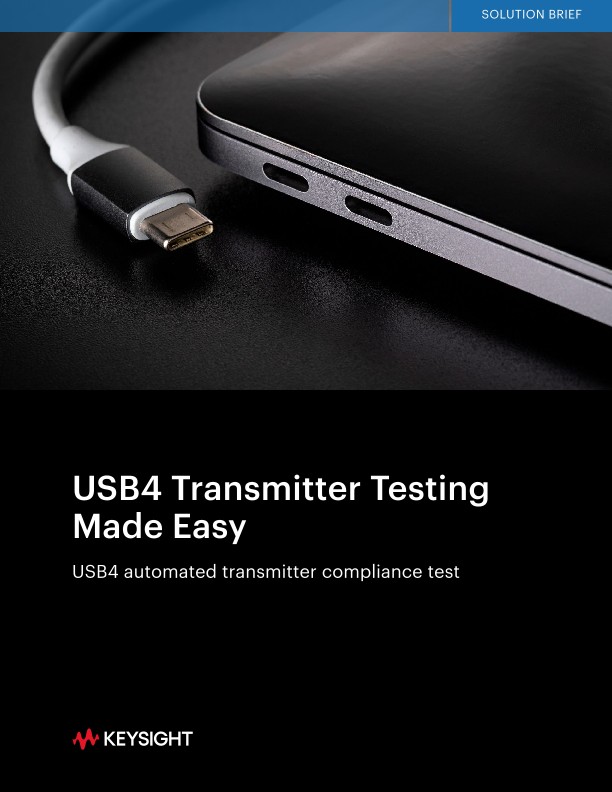
USB4 Transmitter Testing Made Easy
Solution Briefs
Introduction
USB4 is the latest iteration of the USB Implementers Forum (USB-IF) standard to use the USB Type-C connector. USB4 doubles the bit rate of USB 3.2 to 40 Gbps, supporting two 20 Gbps physical layer (PHY) lanes. USB4 also has backward-compatibility support for prior USB standards and other protocols such as DisplayPort and Thunderbolt. Developers must verify that their USB4 device operates according to the updated standard. To ensure compatibility, USB-IF certifies devices only after they pass USB4 transmitter compliance tests
Use Case Summary
Testing USB4 transmitters is more complex than USB 3.2 for multiple reasons. Doubling the PHY bit rate to 40 Gbps introduces additional signal integrity challenges. For example, signals transfer on all four high-speed pairs simultaneously, increasing the near-end and far-end crosstalk. Further complicating testing, the compliance test specification added new jitter, phase, and slew rate measurements. In addition, short-channel and long-channel test cases need additional test setups
USB4 transmitters use a microcontroller test module to make the device transmit test patterns. A high-performance real-time oscilloscope captures these patterns and analyzes them for accuracy
Solution Overview
Keysight’s automated USB4 transmitter compliance test solution provides a fast and easy way to test, debug, and characterize your USB4 transmitter devices. This complete solution, in Figure 1, includes a UXR-Series oscilloscope running the D9040USBC application software and a third-party microcontroller test module connected to the device-under-test (DUT). The solution also requires D9120ASIA Signal Integrity Software and D9120JITA Jitter and Phase Noise Analysis Software
The D9040USBC software configures the setup for each test and provides results, performance margins, and statistical analysis. Coverage includes electrical, timing, and eye diagram tests, as stated in the USB4 Electrical Compliance Test Specification. If a USB4 transmitter can pass Keysight’s compliance tests, it can pass the USB-IF’s certification tests
Summary
• The USB4 standard standard specifies new compliance test requirements due to faster bit rates.
• Complying with the standard requires accurate characterization and testing.
• An automated test solution makes configuration and testing for USB4 compliance easier.